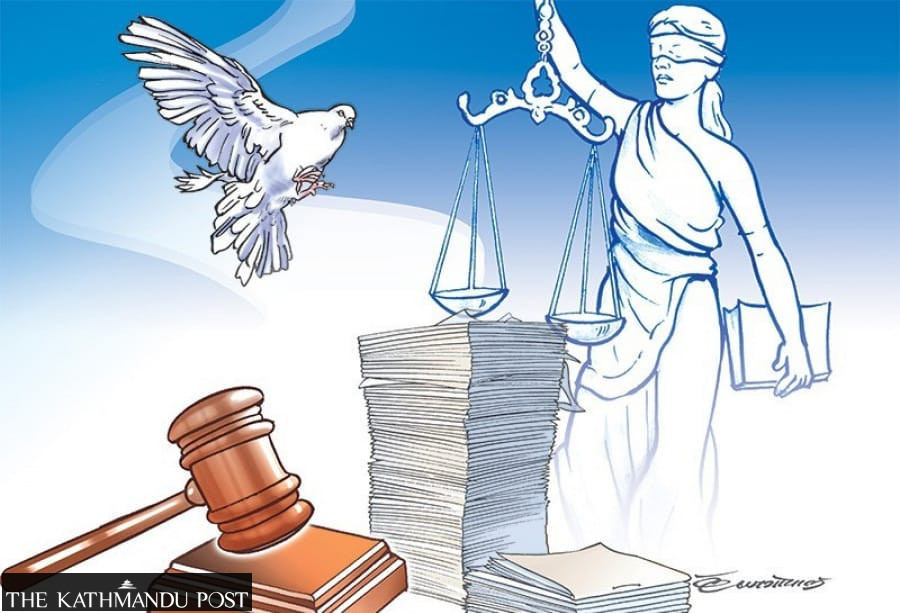Politics
Law revised, but political row stalls transitional justice
Rights watchdog ‘awaits new request’ to send its representative to panel that picks commissioners.
Binod Ghimire
The erstwhile Pushpa Kamal Dahal government on April 12 constituted a committee led by Om Prakash Mishra, a former chief justice, to nominate candidates to the Truth and Reconciliation Commission and the Commission of Investigation on Enforced Disappeared Persons.
While the government picked four members for the committee, the fifth member is either the chairperson of the National Human Rights Commission or someone nominated by him. Initially, the commission had insisted that revision of the Enforced Disappearance Enquiry, Truth and Reconciliation Commission Act was a precondition for its participation in the committee, but following the Act’s amendment, it agreed to join the Mishra panel.
However, three weeks after President Ramchandra Paudel authenticated the bill to amend the Act that the federal parliament endorsed, the constitutional human rights watchdog has yet to recommend its representative. Its officials said they are waiting for a formal request from the Ministry of Law, Justice and Parliamentary Affairs, as they expect a new letter in the changed context.
“We have been told the ministry would send a new request letter for our representative, given the new context following the amendment to the Act,” said a commission member.
The revised Act states that the recommendation committee has two months to make nominations for the chairpersons and members of the two commissions. It has already been five months since the Mishra-led panel was formed.
However, a senior official at the law ministry said he does not think a new process needs to start just because the Act has been amended. “The two month countdown began the day the revised Act was enacted,” said the official. “I also don’t think the ministry told the commission that it would send a new request letter. If such a message was conveyed, it may have come from the political level.”
Those involved in forging all-party consensus on the amendment say tensions between the CPN-UML and the CPN (Maoist Centre) have stalled the transitional justice process. Relations between the two parties have not been cordial ever since the formation of the new ruling alliance. The UML has consistently referred to the Maoist insurgency as ‘violence’, while the Maoist Centre has warned that the present KP Sharma Oli government could meet the same fate as Sheikh Hasina Wazed, the immediate past prime minister of Bangladesh.
“The tussle between the two parties has directly affected the ongoing process,” one leader involved in the negotiations told the Post. “Oli doesn't seem as interested as he was earlier.”
The committee was formed in May amid reservations from conflict-era victims of human rights violations and human rights defenders, who demanded that the Act be amended before selecting office bearers. The government, however, argued that forming the committee was necessary as per the Supreme Court’s March 12 order to the government to select office bearers for the two commissions within a month.
The court had asked the government to constitute task forces within the commissions to conduct preliminary investigations into the victims’ complaints until the office bearers were appointed.
Following the court’s order, the victims and human rights defenders demanded the government and the parties endorse the legal amendments by the top court’s deadline before starting the selection process. However, the amendment bill couldn’t be endorsed within the deadline, prompting the government to form a committee based on existing law.
Following the committee’s formation, the victims and human rights defenders requested the government to halt the selection process until the Act was amended. They also urged the national rights watchdog to hold off on sending its representative.
The two commissions have been defunct since July 2022, when the government decided to extend their terms without retaining their chairmen and members. The government claimed the bill to amend the transitional justice law would be endorsed by October 2022, and the appointments made based on the revised Act.
But it took over two years for the federal parliament to endorse the bill. The victims and human rights defenders are closely watching who will be appointed to the commissions.
The Truth Commission has received 63,718 complaints, while the commission on disappearances is sitting on around 2,400 cases. The new teams will have four years to accomplish their tasks, though there are provisions for their extension. The commissions that were formed in 2015 have done nothing other than collect complaints and conduct preliminary investigations on some of them.




 18.12°C Kathmandu
18.12°C Kathmandu















